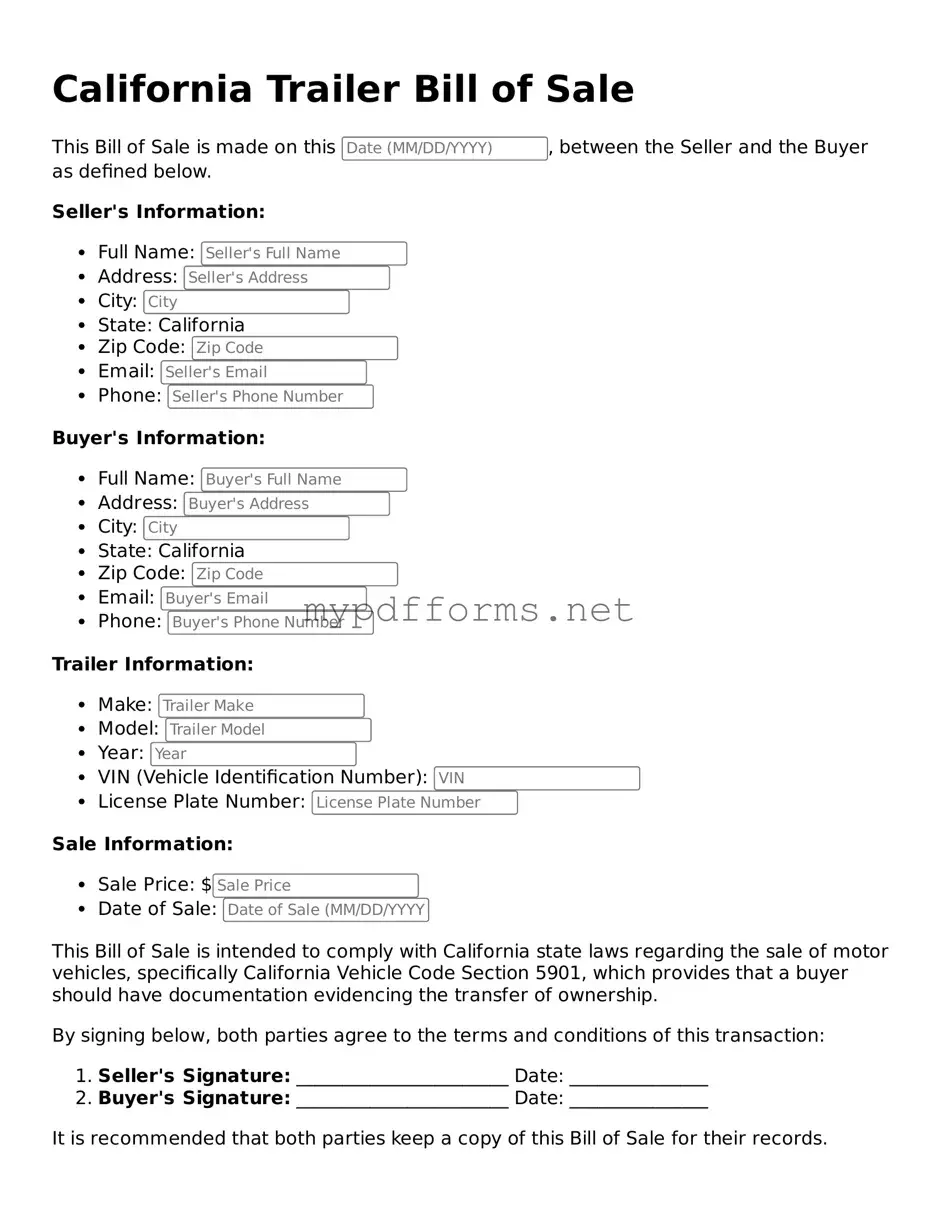Attorney-Verified Trailer Bill of Sale Document for California
The California Trailer Bill of Sale form serves as a crucial document for the transfer of ownership of a trailer in the state of California. This form not only provides a record of the transaction but also protects both the buyer and seller by detailing essential information about the trailer and the terms of the sale. To ensure a smooth transfer process, it is important to fill out the form accurately.
Ready to complete your transaction? Fill out the form by clicking the button below.
Modify Document Here

Attorney-Verified Trailer Bill of Sale Document for California
Modify Document Here

Modify Document Here
or
⇓ PDF
Need to check this off quickly?
Edit and complete Trailer Bill of Sale online in just a few steps.